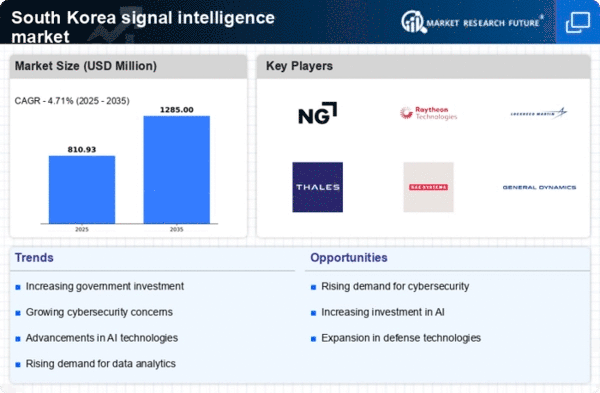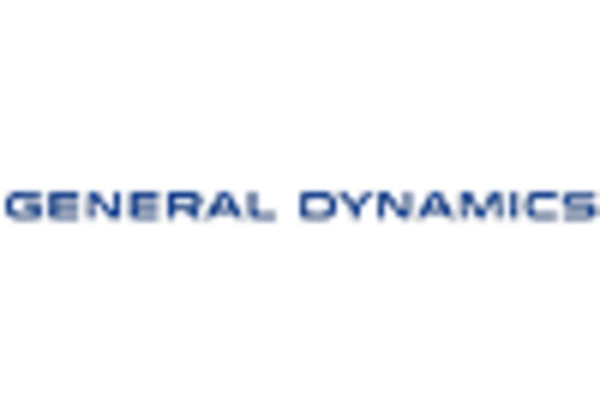Increased Defense Spending
In recent years, South Korea has significantly increased its defense budget, which has a direct impact on the signal intelligence market. The government allocated approximately $50 billion for defense in 2025, with a substantial portion earmarked for intelligence, surveillance, and reconnaissance (ISR) capabilities. This increase in defense spending is aimed at enhancing national security and countering regional threats, thereby driving demand for advanced signal intelligence solutions. The focus on modernizing military capabilities is likely to create opportunities for companies operating in the signal intelligence market, as they seek to provide cutting-edge technologies to meet the evolving needs of the South Korean defense sector.
Growing Cyber Threat Landscape
The evolving cyber threat landscape in South Korea is a critical driver for the signal intelligence market. With increasing incidents of cyberattacks targeting both public and private sectors, there is a heightened need for robust signal intelligence solutions to detect and mitigate these threats. The South Korean government has recognized the importance of cybersecurity, allocating approximately $1.5 billion in 2025 to enhance its cyber defense capabilities. This investment is expected to bolster the signal intelligence market as organizations seek to implement advanced monitoring and analysis tools to safeguard sensitive information and infrastructure. The urgency to address cyber threats is likely to drive growth in the signal intelligence market.
Regulatory Support and Policy Frameworks
The South Korean government is actively supporting the signal intelligence market through favorable regulatory frameworks and policies. Initiatives aimed at promoting the development and deployment of advanced technologies are being implemented, which is likely to create a conducive environment for market growth. In 2025, the government introduced new policies to streamline the approval process for signal intelligence technologies, thereby encouraging innovation and investment. This regulatory support is expected to attract both domestic and foreign players to the signal intelligence market, fostering competition and enhancing the overall landscape. The proactive stance of the government may significantly influence the trajectory of the market.
Strategic Partnerships and Collaborations
Strategic partnerships and collaborations among key stakeholders are emerging as a significant driver in the signal intelligence market. South Korean companies are increasingly forming alliances with technology providers and research institutions to enhance their capabilities and expand their market reach. These collaborations facilitate knowledge sharing and innovation, enabling the development of advanced signal intelligence solutions tailored to specific needs. As of 2025, such partnerships are expected to play a crucial role in driving market growth, as they allow companies to leverage each other's strengths and resources. This trend indicates a collaborative approach to addressing the complex challenges faced in the signal intelligence market.
Technological Advancements in Signal Processing
The signal intelligence market in South Korea is experiencing a surge due to rapid technological advancements in signal processing. Innovations in algorithms and hardware are enhancing the capabilities of signal intelligence systems, allowing for more accurate data collection and analysis. The integration of advanced signal processing techniques is expected to improve the efficiency of intelligence operations, thereby increasing demand. As of 2025, the market is projected to grow at a CAGR of approximately 8.5%, driven by these technological improvements. Furthermore, the South Korean government is investing heavily in research and development to foster innovation in this sector, which is likely to further stimulate growth in the signal intelligence market.
















